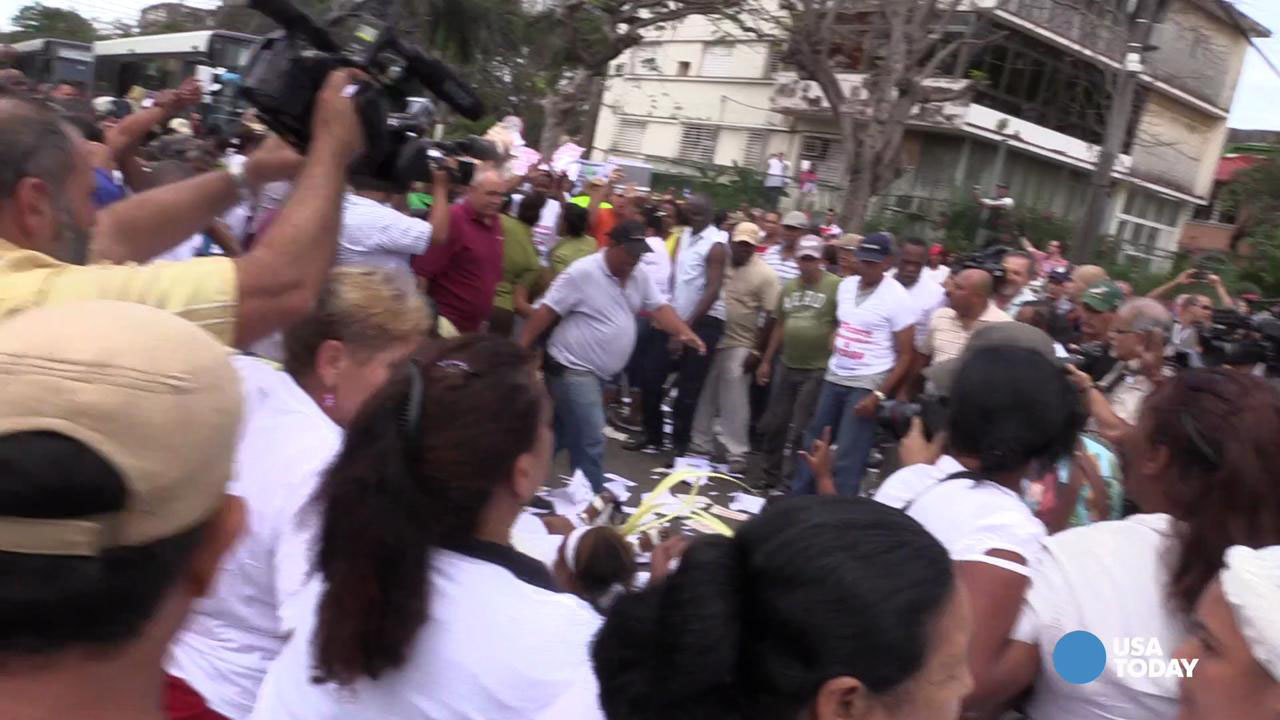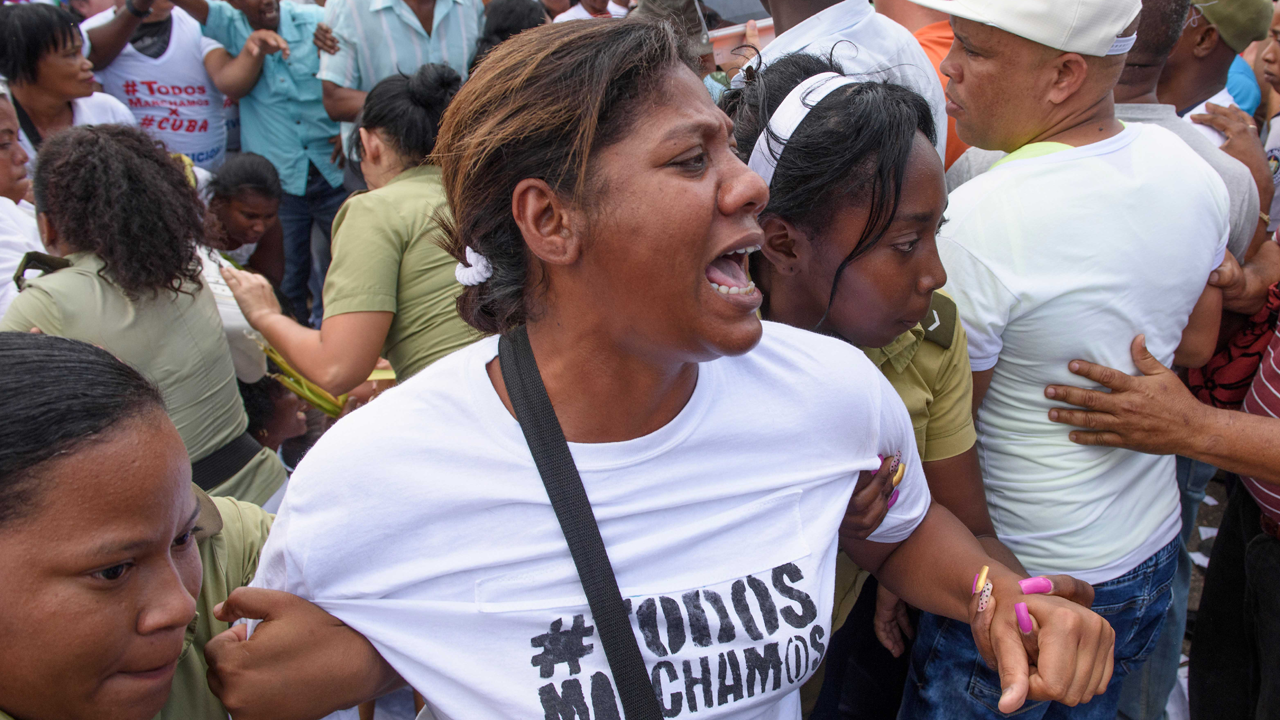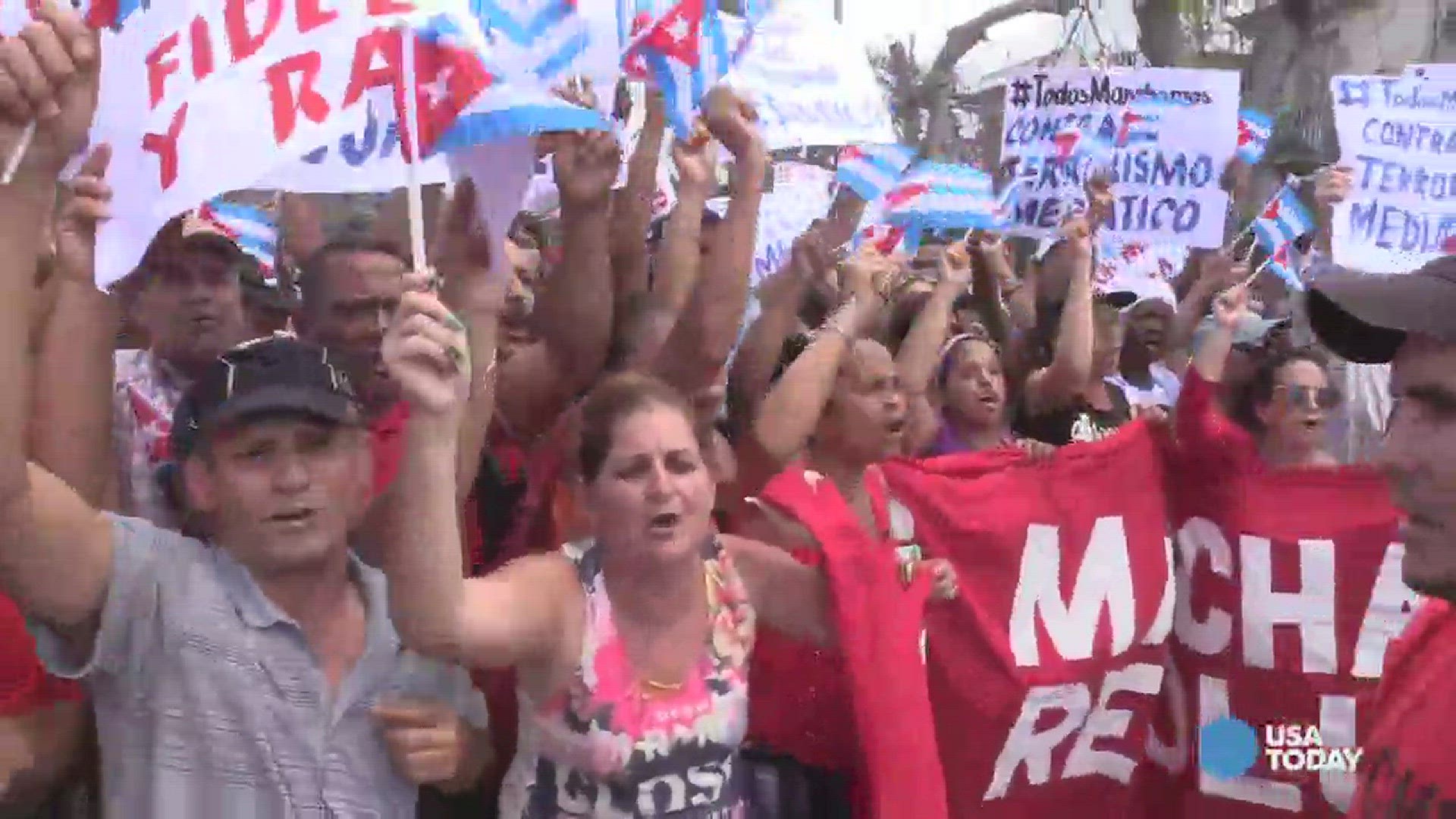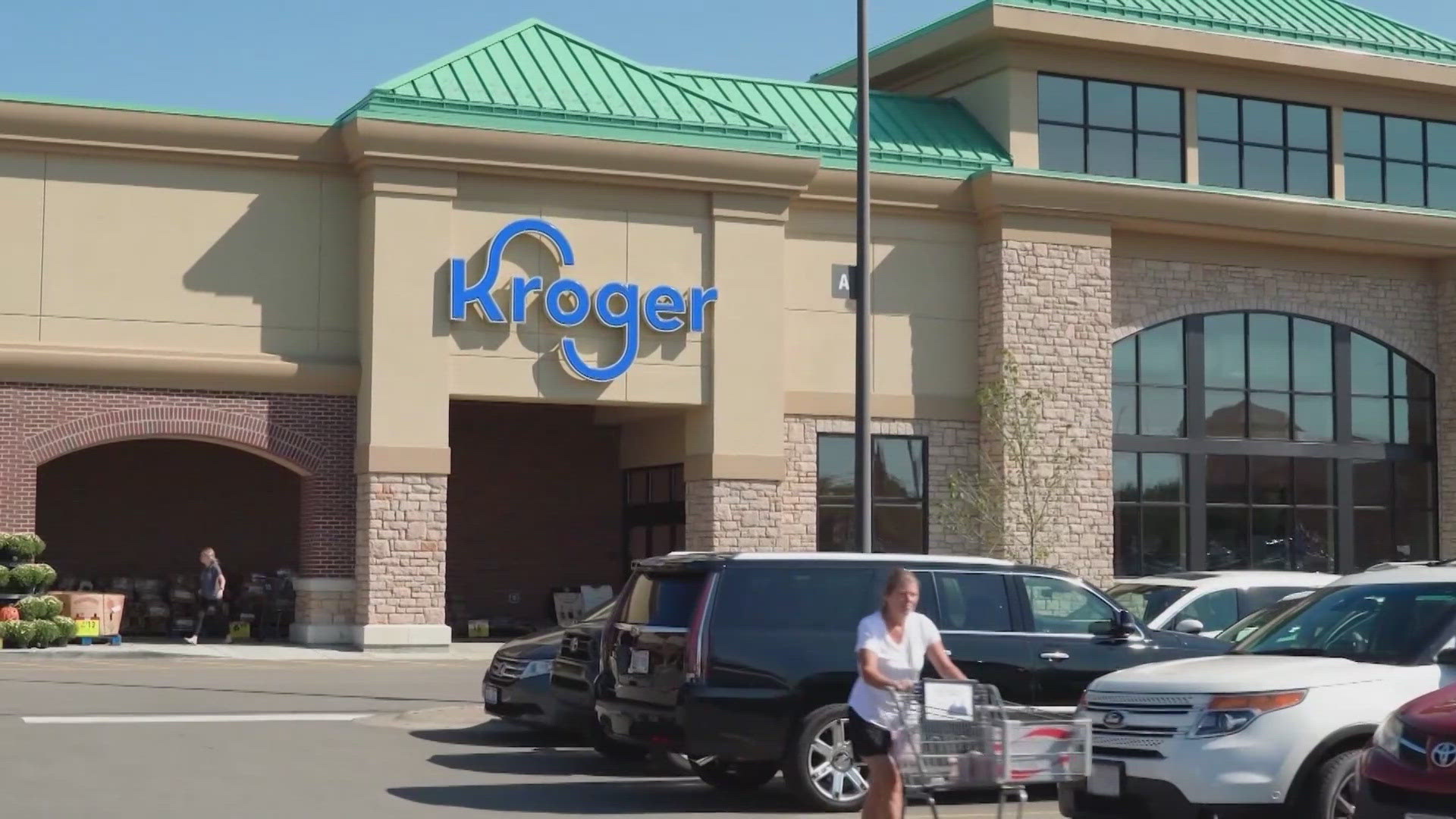HAVANA — Just hours before President Obama is scheduled to land in Cuba on Sunday for his historic visit to the communist island, Cuban authorities arrested more than 50 dissidents who were marching to demand improved human rights.
Members of the group, known as the Ladies in White, are used to the routine. They march each Sunday after mass at a church in a suburb of Havana called Miramar and usually get arrested and detained for hours or days.
But some in the group thought that Cuban authorities would back off on this Sunday out of respect for Obama's visit. Berta Soler, one of the founding members of the group who has been marching since 2003, said while walking to the church Sunday morning that maybe they would be allowed to protest without getting arrested.
"Everything looks good so far," she said.
But despite the presence of dozens of international reporters in town for Obama's trip, the group was quickly rounded up in buses and police cars.
"For us, it's very important that we do this so President Obama knows that there are women here fighting for the liberty of political prisoners," Soler said before being arrested. "And he needs to know that we are here being repressed simply for exercising our right to express ourselves and manifest in a non-violent way."

Obama's three-day trip to Cuba is designed to highlight the new relationship between the Cold War foes. After more than five decades of political and economic isolation, the two nations announced in Dec. 2014 that they would re-establish diplomatic relations. Ever since, embassies have reopened in Havana and Washington, U.S. cell phones can be used in Cuba, U.S. airlines are planning direct flights to the island and several U.S. companies have struck deals to trade with Cuba.
Obama is expected to embrace those changes during his trip, but the issue of human rights has been the most difficult negotiating point leading up to his visit. Secretary of State John Kerry was supposed to visit the island ahead of Obama's trip, but cancelled over disagreements over which members of civil society he could meet with.
The White House has said that Obama will meet with a group of dissidents on Tuesday, but several have said they're unsure if they'll even be able to go.
Guillermo Farinas, a leading voice in Cuba's civil rights movement who is part of the group that could meet Obama, is camped out at a friend's house this week because he said Cuban authorities have ordered him on house arrest. He said many other dissidents like him are being blockaded in their homes ahead of Obama's visit. Because of that, he said Obama has a "moral responsibility" to strongly attack Cuba's human rights record and push them to improve it before the U.S. makes any more changes to expand its relationship with Cuba.
"The most important thing for us is that President Obama doesn't allow the Cuban government to use his visit to create an image of complicity with the actions of the totalitarian regime," Farinas said.
Officials with the Cuban government declined to comment on Farinas' claim that he and other dissidents were under house arrest.
Before the arrests began, some Cubans came out to shout down the Ladies in White, accusing them of being U.S.-funded agitators who had no grounds to complain about their situation in Cuba.
"They're a disgrace to the revolution," said Teonila Reve, a retired Spanish teacher. She said the protesters receive salaries from U.S. government grants designed to undermine the Cuban government, or from Cuban-Americans in Miami who want to topple the Castro regime.
Felipe Hernandez Serrano also shouted at the protesters as they prepared for their march on Sunday. Serrano is the head of his neighborhood's Committee for the Defense of the Revolution, a nationwide organization that critics of the government say is designed to spy on their neighbors. Supporters of the group describe it as community organization.
Serrano called the protesters delinquents and defended the government's right to arrest them when they cross the line.
"The government doesn't arrest innocent people. They stop agitators," he said. "You have to respect the authorities, just like you have to do in the United States."
Elizardo Sanchez, head of the Cuban Commission on Human Rights and National Reconciliation, said from his home Saturday that he hoped Obama would deliver a strong message to the Cubans. But his commission has documented a rise in arrests following Cuba's opening with the U.S., so he said he has no reason to think they will stop just because Obama is coming to town.
"Neither President Obama, nor the Cuban people, expect spectacular changes," Sanchez said. "These kinds of regimes are repressive. It's necessary to maintain their power. So no matter what Obama says or does, it's impossible to put a good face on the human rights situation here in Cuba."



